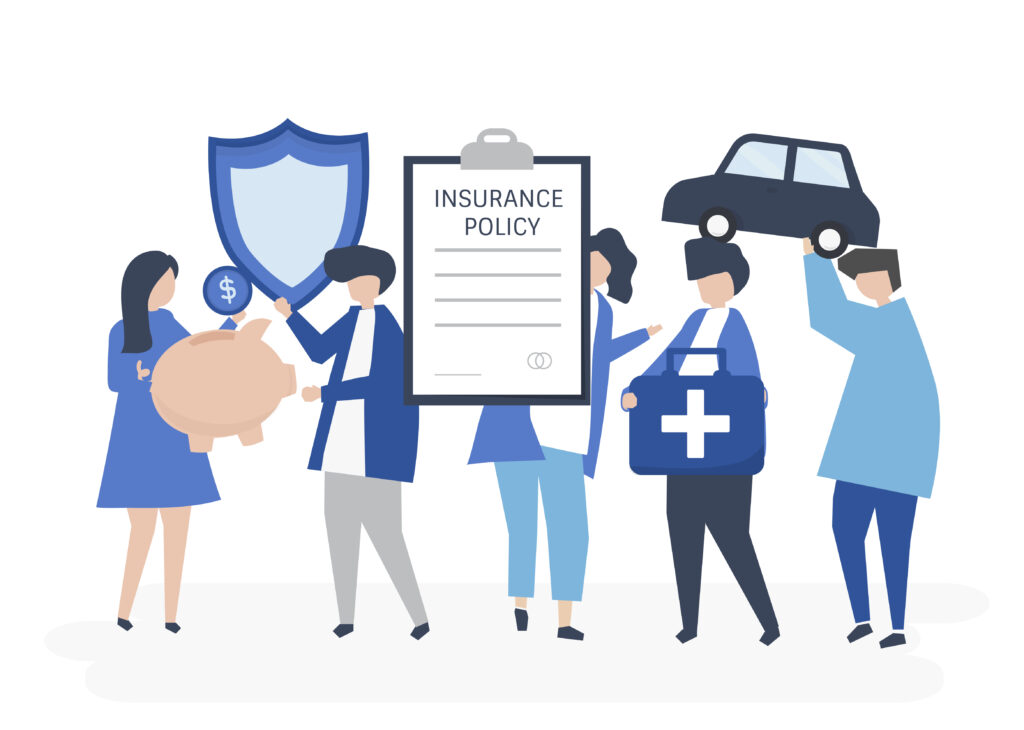Insurance forms a crucial part of maintaining the unsafe conditions that evolve economically not only to a person but also to an organization. Among many types of insurance, car insurance is considered one of the most significant ones as it protects most of the risks emerging from vehicle ownership. But the insurance field can be very bewildering, primarily when trying to figure out the real differences between comprehensive insurance, first-party insurance, and third-party insurance. To make it easier, let’s break down each of these with detailed explanations that will help guide you through some of the key differences in making an informed decision about which type best meets your needs.
What is Comprehensive Insurance?
Much more important to understand concerning comprehensive insurance is that, as a matter of fact, it pertains to an array of mechanisms for car insurance policies that incorporate risks much beyond the aspect of accidents. Most people associate car insurance with collision damages; however, comprehensive insurance has a protective coverage that shields against other damages beyond the incident of collisions through reasons such as theft, fire, vandalism, or natural disasters, to name a few.
In simple words, comprehensive insurance covers your car against situations out of your control. It is an overall kind of policy that has been designed to provide cover for a wide variety of risks, hence it is the most commonly preferred amongst people who own cars.
What’s Comprehensive Insurance?
The comprehensive part of its name means just that-it’s basically an all-inclusive or “full” coverage policy beyond what’s minimum. It will not only pay for damages to your vehicle from an accident but also damage inflicted by factors other than traffic collision. Conversely, however, comprehensive insurance usually does not cover damage resulting from your own negligence: such examples would be ordinary wear and tear, mechanical failure, and, worst of all, driving drunk.
Overview of The First-Party Insurance
First-party insurance is one such where the damages suffered at a policy holder’s end are directly paid by their very own insurance company. In relation to car insurance, first-party coverage generally applies to the owner of the vehicle. Essentially, this means that in case you have first-party insurance, you get paid for car damages resulting from an accident, theft, or natural disasters, among others, depending on what is covered.
Car Insurance First Party for Your Car
For a car owner, car first-party insurance will protect him directly towards damages on your vehicle. This is insurance coverage when your car is damaged not necessarily because of your fault. In an accident, your insurer will advance repairs to your vehicle based on the terms and conditions of your policy regardless of who was at fault.
First Party Car Insurance
Almost synonymous terms you hear regarding 1st party car insurance are first-party insurance. The bottom line is that 1st party car insurance is literally an understanding between you-the first party-and your insurer whereby they agree to recompense any coverage losses resulting from your vehicle.
Third Party Insurance: What It Is
Third party insurance is liability cover that will protect you in case you cause damage to another person’s vehicle, property, or cause them any bodily injuries. The third party, in this context, refers to the individual or third party who has suffered damage or injury through your actions.
Whereas the first-party insurance has to do with the damages of your car, the third-party insurance deals with the damages to someone else’s vehicle or property. In this regard, third party insurance is very common in many countries and constitutes the minimum legal requirement for levels of coverage.
What is First Party and Third Party Insurance?
In simple terms, within car insurance, first-party insurance has to do with the person covered (the policyholder) and the latter’s car.
This is an insurance liability for damages or injury caused to a third party.
This happens to be the difference through which people become aware of what each form of coverage covers and who is going to benefit from it.
First-Party vs Third-Party Insurance Difference
So far, we have introduced the two concepts: first-party and third-party insurance. Now, we shall discuss the major differences between them:
1. Coverage:
First-party insurance pays for damages or loss involving the property of the policyholder. Suppose you have a car accident; first-party insurance covers the amount and cost of fixing or replacing it.
Third-party insurance covers damages or injury caused to other people’s automobiles through your actions. It does not cover accidents or theft of your vehicle.
2. Object:
First-party insurance protects the insured’s property by covering repairs or replacement of your car, compensation in case of car theft, and sometimes medical treatment if you are injured.
Third-party insurance prevents court liabilities if a court establishes that you have caused harm to another person or their property.
3. Mandatory vs Optional
Third party insurance is primarily compulsory through statute. Car owners should have at least this minimum coverage to legally drive.
First-party insurance and comprehensive insurance also fall in the category of compulsory covers, though. Its main attribute is extra security and comfort but at a higher price.
4. Compensation:
For first-party insurance, the company compensates the insured directly.
For third-party insurance, the insurance company pays the third party who suffered the loss or injury due.
Comprehensive v/s Third Party Insurance
Well, to be honest, the choice between all-inclusive insurance and third-party insurance basically depends on how much protection you would want to have and how much you are willing to spend.
All-Inclusive Insurance:
Coverage: Third-party liabilities are covered under such comprehensive insurance but damages to your own vehicle even not based on collision but by theft, fire, and natural catastrophes.
Cost: All-inclusive insurance costs are higher than third party insurance due to its relatively wider scope of coverage.
Benefits: The biggest advantage of third party insurance is it covers a huge array of situations that arise through accidents, vandalism, theft, and damage to weather conditions, which offers maximum peace of mind.
Third-Party Insurance:
Coverage: While within third party insurance, there is coverage only on damages towards another person’s property or injuries to a third party. Nothing happens to your automobile.
Cost: Third party insurance is less expensive and is basically the minimum cover you are legally allowed to have.
Benefits: The only advantage of third party insurance is that the premium is less expensive. It covers all the legal needs and keeps the cost at its minimum level.
Comprehensive vs Third-Party Insurance: What’s The Difference?
Of course, choices between comprehensive and third-party insurance can be based on multiple considerations like needs, value, and budget. Here’s a list for that consideration:
Value of Your Vehicle: If you’re having a new or an expensive car, it’s always better to go with comprehensive insurance because it’s going to cover your car in a wider range when its theft, vandalism, or wrecked.
Environmental context of the driveway: If you live in an area that often faces some natural calamity and incidents of car theft or vandalism, complete auto insurance would be a great idea.
Budget: Third-party insurance is cheaper and will provide basic cover. If your car is very old or is not worth much money then a third party might be good enough.
Bottom Line First Party Vs Third Party Insurance There you have it, folks-the key differences between first party vs third party insurance.
Conclusion
After all, first party versus third party is of paramount importance in deciding the best cover for your needs. More importantly, full cover provides you with a much higher degree of protection over your own vehicle. Third Party insurance usually runs cover in case of liabilities to others. So, at the end of it, you would depend on your personal circumstances and your vehicle’s value as well as how much risk you can indulge.
To ensure adequate protection on the road, evaluate whether you need third-party insurance or at least minimum cover, based on your needs and financial capacity.

